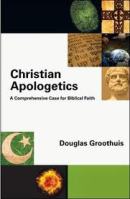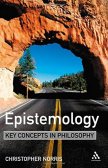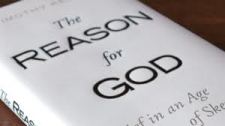Chapter 18 of Groothuis’ Christian Apologetics is on Pascals’ anthropological argument, which can be summarized this way (a version friendly to theistic evolution)…
1. Each human is aware, or is attempting to distract ourselves from the reality, that we are a paradox of greatness and wretchedness. (Many examples are given as evidence.)
2. The best explanation of this paradox is found in two biblical revelations: a) we are meant to be in the image of God (characterized by, and behaving according to, Golden Rule love), and b) our Fall from the Way we are meant to be. (This is the abductive conclusion.)
3. Therefore, the worldview of Christianity is worthy of respect.
Furthermore, Jesus’ incarnation/redemption is God’s ultimate demonstration of greatness, of Golden Rule love, by dying in our place.
A less wordy version, made into an inductive argument (using the abductive conclusion in the second premise), from my friend Roland McConnell, who is skeptical of theistic evolution:
1. Man is a paradox of greatness and wretchedness.
2. The biblical revelation of man’s creation and his subsequent fall is the best explanation of this paradox.
3. Therefore, the biblical doctrines of creation and the fall are probably true.
What I love about this chapter is:
1. Biblical talk of “mystery” and “foolishness” finally makes sense to me (related to #4 below). It cannot be arrived at solely by human deduction/induction, but the revelation “is” the best explanation (abductively)…as opposed to being contrary to reason, or illogical (anti-Logos).
2. It has a footnote that is friendly to theistic evolutionists (16).
3. It’s talk of “diversion” (also mentioned in other parts of the book) reminds me of existentialist philosophers.
“…we are always engaged in something (the state of being engaged in something Heidegger called care–Sorge). Sometimes this involves caring for others, but mostly it involves engaging in our own existence: We fret, we worry, we look forward to something … We are always engaged in some part of our reality, unless we get caught up in another deeper element of human nature: a mood, such as dread or anguish–Angst,” (422).
4. It helped me finally understand how abductive reasoning differs from deductive and inductive. With deductive reasoning, if the premises are true, the conclusion ‘must’ be true. With inductive reasoning, the premises add to the weight of the conclusion’s probability. With abductive reasoning, the conclusion best explains the premises, rather than ‘having’ to be true if the premises are true (as in deduction), and rather than being supported or made more probable by the premises (as in induction)–the abductive conclusion is not something that would be suggested by the premises alone, but which does better explain them than other rival theories.
Some other topics we discussed at our apologetics study group:
1. Roland brought this up. Do the scientists/philosophers who talk about “well-being” and the “science of morality” emphasize merely our greatness (as the Stoics did), merely our wretchedness (as the skeptics did), or both? If both, do they explain the paradox better than Christianity? My thoughts: What perfectly well being in reality do their beliefs describe, if they deny the existence of a perfectly well being? To what being in reality are their beliefs true? If there is no such great being, then they would seem to emphasize our wretchedness. But, if they think we can be no greater than we are, and that evil is an illusion (as Sam Harris gets around to saying in “The Moral Landscape“), then they would seem to over-emphasize our greatness. Thoughts?
2. By wretchedness, is Pascal meaning what Paul means by “the flesh”? Does he ever come out and say that? My friend Pam and I both had those passages popping into our minds as we read this chapter. Roland thinks the answer is that obviously they are the same.
Thoughts on any of the above? :0)
(discussion index)










